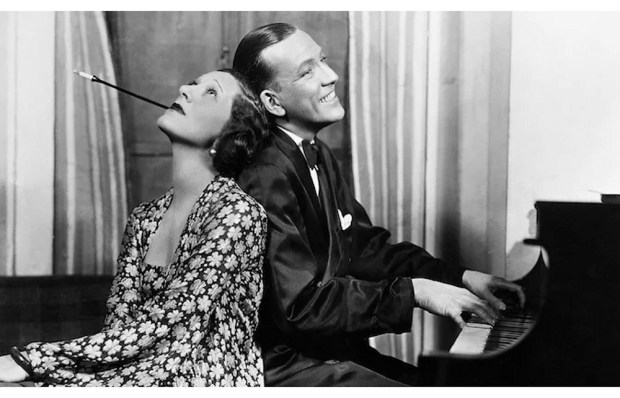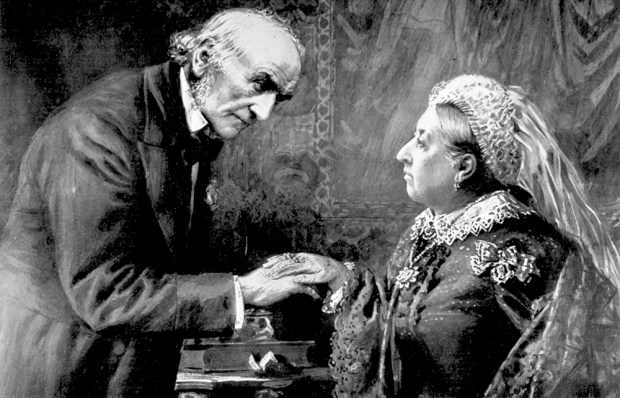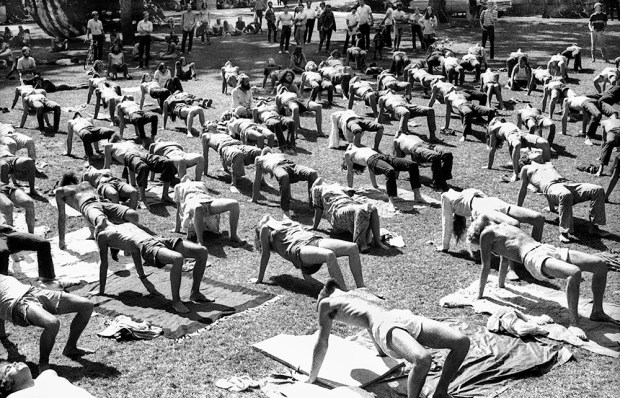How does Philip Larkin’s gloom retain such power to disturb? His bleakest verses have the quality of direct address, as if a poetical Eeyore were protesting directly into our ear. ‘Aubade’, his haunting night-time meditation on the terrors of death and dying, focuses on ‘the sure extinction that we travel to/ And shall be lost in always’ and offers no consolation. His ‘Next Please’ makes grim fun out of our habit of hope, pictured as a ship we expect to greet us with its full cargo of rewards. But of course ‘Only one ship is seeking us, a black-/Sailed unfamiliar….’ He saw religious faith as a form of self-deception. Moreover, his ‘The Old Fools’ mercilessly depicts senility.
In 1991 the Observer attacked Larkin for his pessimism. We don’t expect things always to turn out well for Thomas Hardy’s characters, or Samuel Beckett’s, or for that matter Sophocles’ … and yet it would be surprising to see any of these writers featuring as an Observer ‘villain’. Larkin once commented that deprivation was to him what daffodils were to Wordsworth. Deprivation always cheered him up: it signalled new poetic discoveries.
Probably Larkin’s desolation distresses for other reasons. In his 1993 official biography, Andrew Motion helped paint Larkin as a sterile, loveless, nationalist, racist, woman-hating bigot. Larkin’s father, we learnt, had been a Nazi sympathiser who attended Nuremberg rallies and cherished in the family home a small statue of Hitler giving the Sieg Heil salute. Such toxic detail shed a baneful light. You felt you had to apologise for the frailties of the man before celebrating the felicities of the verse. After Motion’s book came out, teaching Larkin to undergraduates, I feared for his place in the canon.
Yet, as James Booth starts his superb new biography by saying, it would be weird if a writer whose poetry can be so humane and moving were secretly merely a horrible and emotionless shit. Motion’s biography was a condescending performance: Mr Nice, as someone remarked, had tackled Mr Nasty. Since then, prurient fascination with his purported awfulnesses has led to an open season of Larkin-bashing.
Booth’s intention is by contrast to salvage and humanise his subject. Motion always calls him ‘Larkin’. For Booth — Larkin’s professional colleague for 17 years, who has published two studies of his poetry and edited some of his prose writings —Larkin throughout is ‘ Philip’.
There are many writers, W.H. Auden wrote, ‘whose works are in better taste than their lives’. Larkin requires no such apology. His life was a success. His many friends found him witty, entertaining, considerate and kind. He enjoyed his work at the University of Hull library. He got deep satisfaction from writing so many of the greatest lyric poems of his age, and from the numerous prizes and honours that followed.
Booth’s psychology is subtler than Motion’s and more convincing. His achievement is to paint a satisfying and believably complex picture. Larkin the nihilist also wrote: ‘ The ultimate joy is to be alive in the flesh.’ Larkin the xenophobe loved Paris and translated Verlaine. Larkin the racist wrote the wonderful lyric ‘For Sidney Bechet’ and dreamt of being a negro. The Larkin who wrote ‘They fuck you up, your Mum and Dad’ loved his own parents.
As for Larkin the misogynist, it is mysterious how the character painted by Motion could have had any love life at all, let alone a highly complex and fulfilling one. True, Larkin himself once wrote incredulously and comically of sex as ‘like asking someone else to blow your nose for you’: he sometimes experienced a Swiftian horror at being incarnate. Yet he was also very attractive to women and for excellent reasons: he liked women and was a tolerant, patient listener and a wise soulmate. He regretted never marrying. In one mood he indeed described his life to Motion as ‘fucked up’ and ‘failed’ as a result. But this was one mood; and he had others.
Booth makes a number of significant and effective moves. One is to show how Larkin kept many friendships alive by developing different personae for each. His performance was always tailored for a specific audience; and his friendships, like his love affairs, were compartmentalised. So, when in later life he aped the bigot to provoke the bien-pensants, his fervent nationalism, says Booth, is ‘the product of performance as much as of ideology’. That surely rings true.
This is especially illuminating vis-à-vis Kingsley Amis, with whom he fostered for decades a correspondence full of childish, obscene banter that reflected the tone of their first meetings in wartime Oxford when both were emerging from adolescence. Larkin was the dedicatee of Lucky Jim, as well as the early model for its hero Jim Dixon, while the novel’s unlikeable and manipulative character Margaret Peel is based on his lifelong partner, the boringly self-centred, anti-Semitic Monica Jones. Booth shows how crucial to that first novel’s success Larkin was, patiently editing line by line, at the insecure Amis’s request. Larkin, after all, had already published two novels himself: Jill and A Girl in Winter. But his fiction writing later came to seem a false start.
He skilfully flattered Amis’s prejudices, while never sharing his blokeish underlying philistinism; and when Larkin died, Amis wondered often whether he had ever really known him.
It is good not to have to apologise for Larkin any more. He emerges from this refreshingly fine book closer to the paradigm of the poet praised by John Keats in a famous letter.
As to the poetical Character itself — it has no self — it is every thing and nothing. It has no character — it enjoys light and shade … What shocks the virtuous philosopher, delights the camelion Poet. It does no harm from its relish of the dark side of things any more than from its taste for the bright one.
Without citing Keats’s letter, Booth evokes a chameleon-like Larkin whose relish for the dark side of things does no harm. And then so much of Larkin’s best work brings dark and bright together. Booth’s poem-by-poem account of Larkin’s evolution as a poet is compelling and makes clear how unmistakeably Larkin belongs among the greats. Consider — out of many — his masterful and moving ‘The Trees’.
The trees are coming into leaf
Like something almost being said;
The recent buds relax and spread,
Their greenness is a kind of grief.Is it that they are born again
And we grow old?
No, they die too,
Their yearly trick of looking new
Is written down in rings of grain.Yet still the unresting castles thresh
In fullgrown thickness every May.
Last year is dead, they seem to say,
Begin afresh, afresh, afresh.
On rereading this in his work-book the chameleon-poet — not untypically — added the words: ‘Bloody awful tripe.’
Got something to add? Join the discussion and comment below.
Get 10 issues for just $10
Subscribe to The Spectator Australia today for the next 10 magazine issues, plus full online access, for just $10.
Available from the Spectator Bookshop, £20. Tel: 08430 600033.
You might disagree with half of it, but you’ll enjoy reading all of it. Try your first month for free, then just $2 a week for the remainder of your first year.













Comments
Don't miss out
Join the conversation with other Spectator Australia readers. Subscribe to leave a comment.
SUBSCRIBEAlready a subscriber? Log in